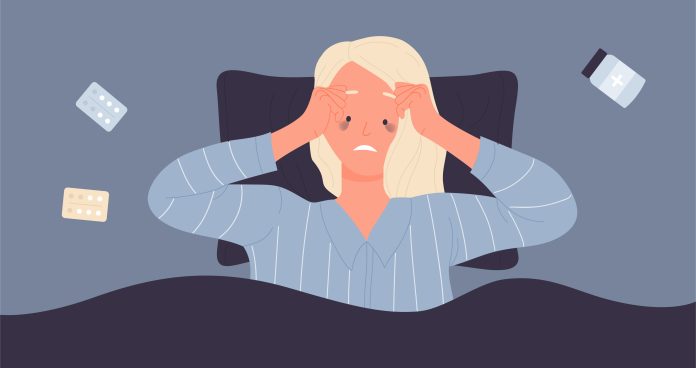
As people age, getting a good night’s sleep often becomes more difficult.
While younger adults might wake up briefly about five times a night, some people over 60 may wake up as many as 150 times.
This lack of sleep, or insomnia, can lead to more than just feeling tired—it can significantly increase the risk of developing depression.
Research led by Dr. Michael Irwin at UCLA has shown that older adults who struggle with chronic sleep problems are at a much higher risk of depression.
The study is the first to look at how insomnia and depression are connected in seniors.
“Older people with insomnia are much more likely to become depressed,” says Dr. Irwin. “The data are remarkable: the longer the insomnia lasts, the greater the chance of developing depression, even for those who have never been depressed before.”
Insomnia, Inflammation, and Depression
Inflammation in the body can also lead to depression. Dr. Irwin’s team found that an inflammatory challenge, similar to an infection, can trigger depressive symptoms.
They are conducting a study where they inject an inert bacteria called an endotoxin to provoke an immune response in up to 160 older adults, some with insomnia and some without.
Previous studies have shown that this inflammatory challenge can cause a depression response. When the inflammation goes away, so does the depression. For seniors without insomnia, this resolution takes about six hours. But for half of the participants with sleep problems, it can last up to nine hours.
Early findings suggest that having insomnia increases the severity and duration of depressive symptoms during these inflammatory challenges. Symptoms were not only reported by the participants but were also observed by clinicians. Importantly, none of the participants reported suicidal thoughts when depression was induced.
“When you meet people before the study, they seem fine,” Dr. Irwin explains. “After the endotoxin, they often appear sad and depressed, and they feel socially disconnected. These symptoms resolve once the inflammation subsides.”
Understanding how insomnia, inflammation, and depression are connected can help doctors monitor older adults who are at higher risk. For example, if an older adult with insomnia develops an infection or even gets a vaccination, they should be closely watched for signs of depression.
Who is More at Risk?
One aspect that requires further study is why some individuals have a stronger depression response to inflammation than others. Dr. Irwin notes that the sensitivity to these changes may be due to how the brain perceives the inflammatory signals, but the exact reasons are not yet clear.
Women are more likely to become depressed than men, but controlling for sex hormones didn’t explain the differences in responses. To better understand these mechanisms, Dr. Irwin’s team is using a genome-wide approach to see which genes are affected by the endotoxin injection and whether people with insomnia have different genetic profiles.
The goal is to identify the biological and behavioral factors that increase the risk of depression and find ways to modify them. By doing so, we can improve methods to prevent depression in older adults better than what is currently available.
“When people get sick, they often feel depressed, and it’s seen as part of the illness,” Dr. Irwin says. “But understanding how to reduce the likelihood of depression occurring and intervening early can make a significant difference.”
If you care about sleep, please read studies about herb that could help you sleep well at night, and these drugs could lower severity of sleep apnea by one third.
For more information about sleep, please see recent studies that coffee boosts your physical activity, cuts sleep, affects heartbeat, and results showing how to deal with “COVID-somnia” and sleep well at night.
Source: UCLA.



